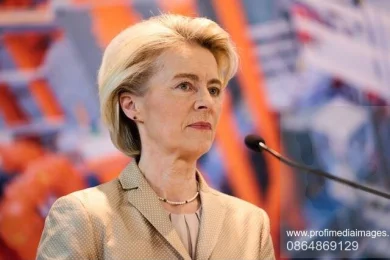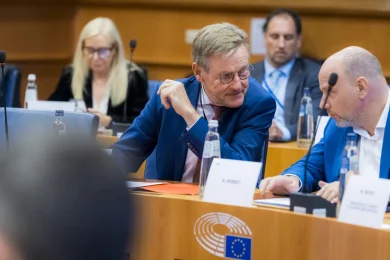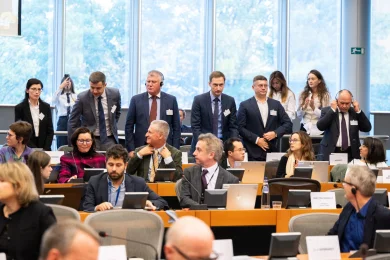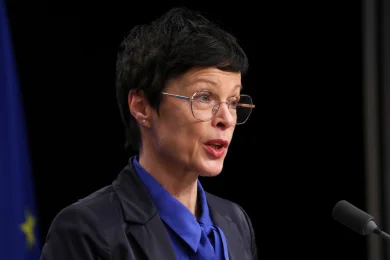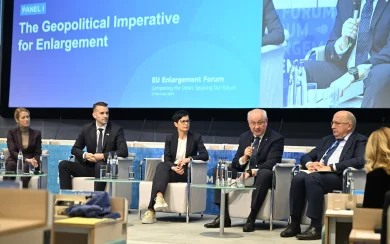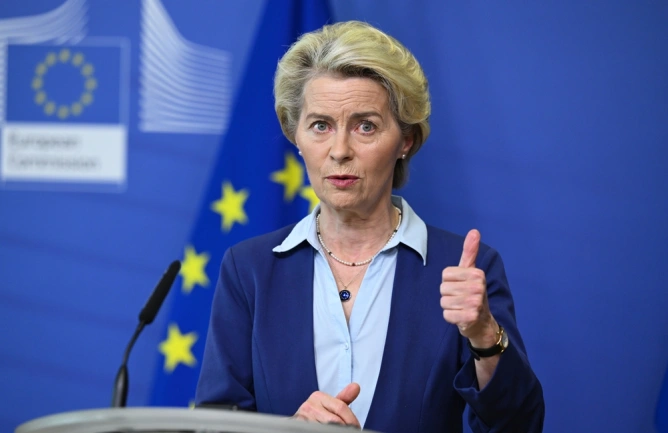
Brussels, November 4, 2025 – The European Commission has published the most comprehensive enlargement package of the last decade, presenting assessments of the progress made by the ten candidate and potential candidate countries for accession to the European Union. The document marks an important moment in the reconfiguration of the enlargement policy, in a European context where the enlargement of the Union is no longer a political option, but a strategic necessity.
We are more determined than ever to turn the enlargement of the European Union into reality. A larger Union means a stronger and more influential Europe on the world stage. But this process must – and will remain – merit-based.
President of the European Commission, Ursula von der Leyen
The Commission has analyzed the performance of the candidate countries and concluded that the pace of reforms has increased in most countries, especially in Montenegro, Albania, Ukraine, and the Republic of Moldova. The opening and closing of negotiation clusters will depend on progress in the areas of the rule of law, democracy, and fundamental rights, and the Commission proposes stricter mechanisms to prevent democratic backsliding in future accession treaties. At the same time, the growth plans for the Western Balkans, Moldova, and Ukraine maintain the political objective of a credible enlargement by 2030, without "shortcuts" and with adequate internal preparation of the Union.
Why now and in what way
After more than a decade of stagnation, enlargement is back at the center of the European agenda, fueled by major transformations in the eastern neighborhood. Russia's war against Ukraine, hybrid pressures on the Republic of Moldova, tensions in the Western Balkans, and risks of democratic fragmentation have made enlargement an essential tool for regional security and stability. The Commission explicitly links enlargement to the strategic resilience of the Union, stating that "every step towards a larger Europe must also mean a stronger Europe." In President Ursula von der Leyen's vision, enlargement is not just a matter of common values, but an investment in collective security, aimed at strengthening Europe's democratic frontier against authoritarian threats.
The enlargement process is advancing today faster than in the last fifteen years. But we cannot afford to lose this momentum. The global order is changing, and Europe's security is increasingly exposed to risks.
The High Representative and Vice President of the Commission, Kaja Kallas
The package reaffirms the fundamental principle of the accession process: each country advances based on its own merits and reforms, without derogations and without political "shortcuts." At the same time, the Commission introduces a new mechanism for gradual integration before accession, allowing phased access to benefits of the Single Market, to SEPA (the Single Euro Payments Area), to the "Roam like at home" regime (one of the major European successes that allows any European citizen to call anywhere and anytime in the EU without fear of huge tariffs) and to funds dedicated to economic convergence.
The new method of progressive integration represents a structural change in the enlargement policy. Instead of the old approach, where benefits came only after full accession, candidate countries can gradually access segments of the Single Market, European programs, and financial mechanisms based on the reforms implemented. Thus, the process gains credibility for citizens, who can see concrete effects before accession, and governments are encouraged to maintain the pace of democratic and economic reforms. It is a shift from the rigid logic of "all or nothing" to a model based on measurable steps and real performance, which could become the standard for the new generation of enlargements.
The rule of law, the decisive criterion
At the center of the new framework remains the rule of law, considered by the Commission to be "the cornerstone of mutual trust in the Union." Progress in the areas of justice, anti-corruption, and fundamental rights influences both the speed of negotiations and access to economic and financial benefits. The Commission proposes strengthening mechanisms to prevent democratic backsliding through clauses included directly in future accession treaties – an innovation inspired by the post-accession experiences of some member states. These clauses would allow the Union to suspend certain rights or funds in the event of a democratic decline after accession.
The Commission does not set a strict timetable, but outlines a realistic horizon for enlargement by the end of the decade, conditioned by concrete results and prepares a Communication on "Preparing the Union for Enlargement," scheduled for 2026, which will propose institutional and budgetary adjustments aimed at ensuring that an enlarged Union remains functional and capable of making decisions effectively.
Uneven progress, but a common direction: where each enlargement partner stands
The annual assessment by the European Commission shows an uneven but generally positive picture of the enlargement process. Montenegro and Albania are nearing the completion of negotiations, while Ukraine and the Republic of Moldova confirm an accelerated dynamic, becoming the leaders of the eastern wave of accession. The Western Balkans are affected by political polarization and stagnation in democratic reforms, while Georgia and Turkey remain in evident regression. Despite the differences, all countries are called to demonstrate that enlargement is not just a geopolitical promise, but a process based on verifiable results and real convergence with European values.
Overall, 2025 has been a year of significant progress in the enlargement process of the European Union. Montenegro, Albania, Ukraine, and the Republic of Moldova stand out for the results achieved. These countries have made the most progress in reforms in the last year.
Commissioner for Enlargement and Neighborhood, Marta Kos
Montenegro
It is the most advanced state in the accession process, having all six negotiation clusters open and four chapters provisionally closed. The Commission notes progress in judicial reforms and strengthening public administration, with a perspective of completing negotiations by 2026, provided that internal political consensus is maintained.
Albania
It has made progress in judicial reform and combating organized crime, which has allowed the opening of four negotiation clusters. The Commission believes that Albania can close several chapters by 2027, provided that anti-corruption institutions are strengthened and a stable political dialogue is maintained. Efforts for economic modernization and digitalization accelerate alignment with EU standards.
Serbia
The accession process is affected by political polarization and democratic regression. The Commission draws attention to the limitation of press freedom, social tensions, and stagnation in judicial reforms. Although there is progress in aligning with EU foreign policy, Belgrade must resume dialogue with Pristina and demonstrate real political will to relaunch negotiations.
North Macedonia
Administrative and judicial reforms have continued, but political blockages have delayed the opening of the first negotiation cluster. The Commission calls for the implementation of the constitutional amendments agreed in 2022 and a stronger fight against corruption. With a stable majority, the country could advance rapidly in the accession process.
Bosnia and Herzegovina
It has made steps in data protection and border management, but the political crisis between the federal entities has hindered progress. The Commission emphasizes the need to appoint a chief negotiator and adopt laws on justice and public integrity. The opening of negotiations depends on a return to normal institutional cooperation.
Kosovo
It remains a partner with strong public support for European integration, but faces administrative blockages and tensions in the north. Brussels conditions progress on the full implementation of normalization agreements with Serbia. The Commission is ready to issue the Accession Opinion once the authorities submit the official request.
Turkey
Although it remains a candidate country, the process has been stalled since 2018 due to regressions in human rights, press freedom, and judicial independence. The Commission mentions pragmatic cooperation in migration, energy, and trade, but the resumption of negotiations depends on a clear change in political direction.
Ukraine
It has completed the screening and met the conditions for opening the first three clusters ("foundations," "external relations," and "internal market"). The Commission recognizes the reform efforts even in the context of war, especially in the area of anti-corruption. The government announces a provisional closure of negotiations by 2028.
Republic of Moldova
It has completed the screening and met the conditions for opening the same three clusters as Ukraine, benefiting from strong political support and an administration in accelerated reform. The Commission appreciates the progress in justice and anti-corruption, highlighting the importance of political stability after the 2025 elections. Government forecast: completion of provisional negotiations by early 2028.
Georgia
It is in a critical situation, with deviations in the rule of law and press freedom. The Commission believes that the authorities in Tbilisi have deviated from the Copenhagen criteria, qualifying the country as "a candidate only in name." The relaunch of the European path depends on a return to democratic reforms.
Enlargement, supported by strategic funding and clear benchmarks until 2030
For the first time, the enlargement policy is supported by large financial instruments designed to stimulate economic integration before accession. The Western Balkans benefit from a 6 billion euro Growth Plan, aimed at investments, infrastructure, and regional interconnections. Funds will be allocated based on the performance of reforms and the degree of alignment with the community acquis, aiming for gradual proximity to the Single Market. The Commission's objective is to transform these economies into competitive and stable partners, capable of adopting European standards before accession.
Our package offers specific recommendations for all our partners. And we send the same message to all: accession to the European Union is a unique offer, a promise of peace, prosperity, and solidarity. With the right reforms and strong political will, each of you can seize this opportunity.
President of the European Commission, Ursula von der Leyen
In the East, the Republic of Moldova and Ukraine are becoming beneficiaries of the most extensive support instruments in the history of neighborhood policy. Moldova will receive 1.9 billion euros, while Ukraine has a multiannual facility of 50 billion euros for macroeconomic stability, reconstruction, and structural reforms. Both countries are connected to SEPA and are set to benefit from the "Roam like at home" regime. These financial instruments accelerate economic convergence and strengthen the geopolitical anchoring of the eastern region in the European architecture, transforming enlargement from a political project into a visible economic process.
Enlargement is an investment in a stable Europe, and most of our citizens recognize this. There are no shortcuts for countries aspiring to join, but everything the Union can do to support the process must be done.
The High Representative and Vice President of the Commission, Kaja Kallas
The 2025–2030 timeline and the risks of stagnation
The Commission outlines a realistic timeline for enlargement until 2030, in which the pace of reforms becomes decisive. If Montenegro maintains political consensus, it could close negotiations by the end of 2026, followed by Albania in 2027. Ukraine and the Republic of Moldova aim to complete provisional negotiations by 2028, provided that reforms in justice and public administration are accelerated.
The window for enlargement is wide open, and we must seize this opportunity now. The accession of new states to the European Union by 2030 is a realistic goal.
The High Representative and Vice President of the Commission, Kaja Kallas
The Council of the European Union must decide, based on the Commission's recommendations, on the opening or closing of negotiation clusters. The year 2026 is considered a turning point, when the Council could confirm the strategic direction of enlargement. At the same time, the Council will need to balance the desire for enlargement with the need for internal reform, to avoid institutional and budgetary overload.
The report warns of the risks of stagnation and regression. Serbia and Georgia are mentioned as negative examples, where political polarization and pressure on the press have slowed reforms. The success of enlargement depends on the political will and administrative capacity of states to meet the basic criteria. The Commission proposes post-accession safeguard clauses, aimed at preventing the repetition of "democratic backsliding" situations.
If the pace and quality of reforms are maintained, we could conclude accession negotiations in the coming years. If the process is managed correctly, a larger Union will make Europe stronger. The Commission will insist on the highest level of quality of reforms, especially in the areas of the rule of law, democratic institutions, and fundamental freedoms. There will be no shortcuts.
Commissioner for Enlargement and Neighborhood, Marta Kos
Enlargement and the Single Market – a mutual gain
Gradual integration into the Single Market before accession is a central innovation of the current enlargement framework. By gradually opening the European market, candidate countries can benefit in advance from investments and increased trade flows, reducing economic disparities. Areas such as energy, transport, and digitalization will be the first to connect to European standards, providing companies with stability and reducing transaction costs.
The history of enlargement since 2004 confirms the positive economic impact: the standard of living in the new member states has doubled, unemployment has been nearly halved, and trade with the rest of the Union has multiplied by more than five times. For the EU, enlargement has stimulated GDP growth and strengthened internal value chains. These data constitute the main argument of the Commission for a new round of enlargement: a larger Union is, at the same time, more competitive and more resilient.
Procedurally, the next steps fall to the Council of the European Union, which must decide, based on the Commission's recommendations, on the opening of new negotiation clusters with Ukraine and the Republic of Moldova and the pace of the process in the Western Balkans. The Commission is preparing a complementary Communication on adapting internal policies to a larger Union – from the multiannual budget to economic governance and voting mechanisms. This stage will clarify the balance between enlargement and deepening, ensuring coherence between economic enlargement and institutional reform.
